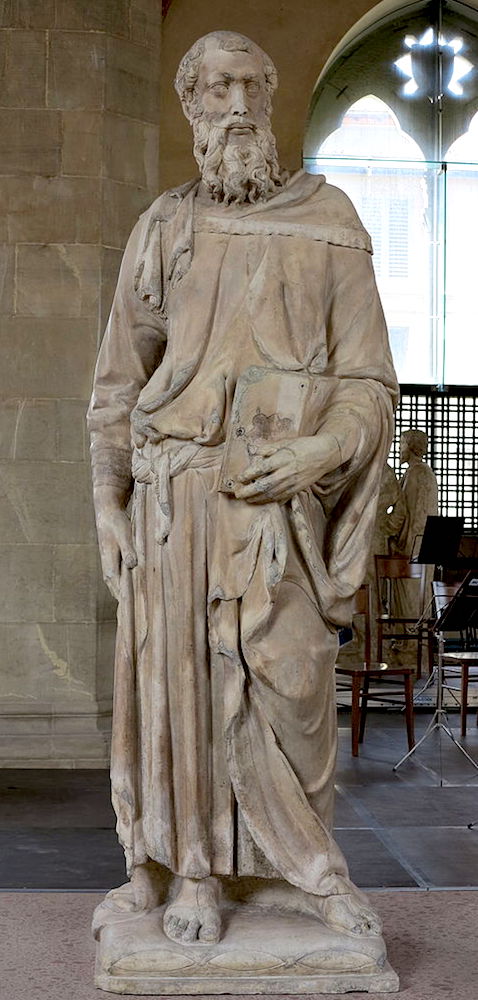Yesterday marked the birthday of the Italian artist Donatello. Working in an entirely different milieu than Edvard Munch, whose birthday we remembered last week, Donatello was a person of the Renaissance, an integral part of one of the most glorious period of human achievement. The Renaissance was a time, a very brief time, when, amazingly enough, spiritual fealty and artistic inspiration fused, fused in a way that produced some of the most magnificent works of art in history.

A sculptor, Donatello was known for his highly realistic depictions of the human being, for extraordinary sculptural detail: his works are remarkable studies in the immensely complex nature, external and internal, of the human being. Like most of his contemporaries, Donatello grasped that humanity is more than material and yet more than spiritual, too: it's both. He understood that a person cannot be material without being spiritual, and spiritual without being material: the two are inseparable.
Although as Western Europe moved beyond the Renaissance, the influence of this perspective diminished, and many people concluded that, in truth, they are products of materiality alone, Donatello's work reminds us of who we really are. We are indeed immensely amazing in our material abilities, yet we shortchange ourselves if we insist that we should not be in turn equally amazed that we are creatures of spirit, a spirit without which we could not be meaningful material beings in a material world.
No comments:
Post a Comment